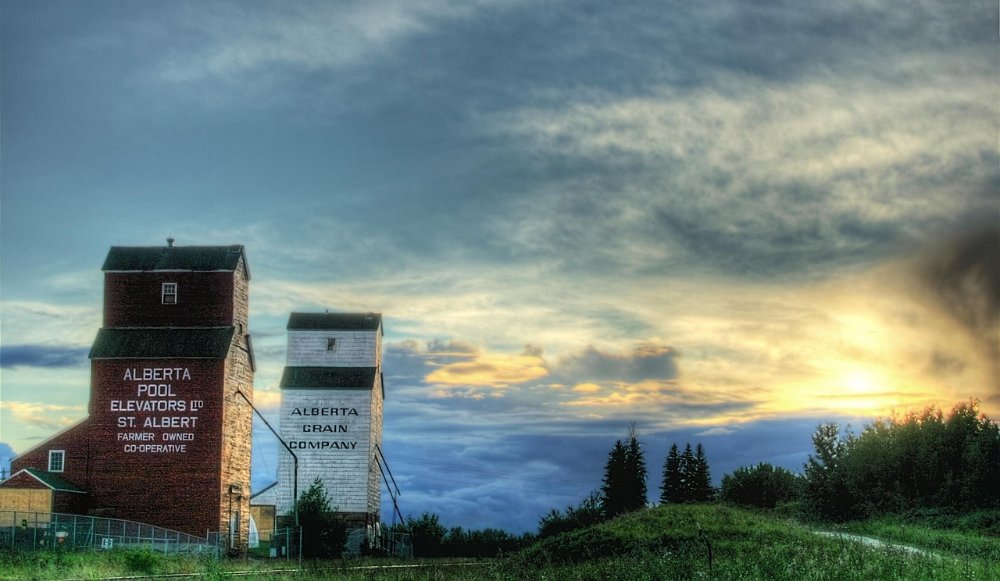Bolstered by its strong stand against Trump tariffs, with newly minted Prime Minister Mark Carney at the helm, Canada’s long-dominant Liberal Party appears headed for its fourth consecutive election victory.
But a big chunk of the country, roughly from Hope, British Columbia, to Winnipeg in Manitoba, isn’t coming along for the ride. Western and rural Canada is restive. Oil-rich Alberta is talking about becoming a sovereign province in a sovereign nation. Rural British Columbia has elected just one Liberal to parliament in the last half century.
Preston Manning, influential founder of the country’s Reform Party, whose leaders came to dominate the opposition Conservative Party, stirred up the campaign with an op-ed piece in The Globe and Mail. “Large numbers of Westerners simply will not stand for another four years of Liberal government,” wrote Manning. “Voters, particularly in central and Atlantic Canada, need to recognize that a vote for the Carney Liberals is a vote for Western secession — a vote for the breakup of Canada as we know it.”
The political cleavage in Canada is a mirror of U.S. divisions. The Liberals are an urban-suburban party, a party of the educated but also immigrants. A trio of great cities —Montreal, Toronto, and Vancouver — are bastions of Liberal support. The “natural governing party” is expected to harvest a majority of populous Ontario’s 122 seats in parliament.
With only fourteen seats in the House of Commons — all held by Conservatives — Saskatchewan feels left out. So does Alberta. A recent Angus Reid survey found about a quarter of Albertans favor secession.
Alberta has shown a half-century of antipathy to Prime Ministers Pierre Elliott and Justin Trudeau. With the younger Trudeau’s resignation, the Liberals are showing signs of life in Calgary, Edmonton, and Lethbridge. Equal, however, are stirrings of secession. It has a nickname borrowed from Europe — “Wexit” — and a familiar name in the newly launched Republican Party of Alberta.
Seemingly contradictory emotions are at work in advance of the April 28 election. “We are coming together as a country,” Carney declares. Canadians are making fewer trips to “the States,” and buying Canadian-made products, and bridling at Trump’s bullying talk of making their sovereign country “the 51st state.”
“Canada is worth fighting for,” agrees Alberta’s right wing Premier Danielle Smith. She has displayed red-painted toenails, delivering a messsge that she is Canadian from the top of her head to the tip of her toes.
But Smith and other populists want a different kind of Canada. They advocate oil pipelines and oppose measures to curb climate change, particularly an unpopular carbon tax. Anti-vaxxer sentiment is also strong, witness the “Freedom Convoy” which occupied downtown Ottawa for weeks in the late winter of 2022.
Smith has written to Quebec Premier Francois Legault suggesting they collaborate to create “a path toward a new era in confederalism.” Already, in the Alberta Legislature, her government introduced something called the “Sovereignty Within a United Canada Act,” is designed to enhance provincial powers.
The rise of right wing populism has produced one major casualty, as in the U.S. Main Street pro-business conservatives have been pushed aside. In Alberta, activists in the governing United Conservative Party ousted Premier Jason Kenney and installed the combative Smith. The center-right B.C. United Party in British Columbia came apart last year and was largely absorbed by a Conservative Party led by an anti-vaxxer and climate skeptic.
The Conservative Party of Canada’s leader, Pierre Poilievre, vows to protect Canada’s sovereignty against Trump, but gives off Trumpian vibes. He would drill for more oil, lift a ban on oil tankers off the B.C. Coast, and sweep away business regulations.
The Liberals, under Carney, have slipped slightly in opinion polls, but are still expected to capture a majority of seats in parliament. It will be a majority built in populous Ontario and French-speaking Quebec.
Mark Carney is a Harvard- and Oxford-educated economist, former governor of both the Bank of Canada and Bank of England, and a climate adviser to the United Nations. He is a native of Western Canada, but nowadays at ease in corridors of power on both sides of the Pond. He epitomizes everything Western Canada’s sovereignty advocates and promoters of succession dislike about the Liberals.
Donald Trump despised and demeaned Justin Trudeau, and has been free with derogatory remarks about Canada’s internal affairs. But Mark Carney is no shrinking violet, and has made explicit Canada is not for taking over. The Trump-Carney interplay will be fascinating to watch. So will the divisions within Canada.
This article also appears in the website Cascadia Advocate.
Discover more from Post Alley
Subscribe to get the latest posts sent to your email.

It has been a half-century-plus since there was any big reason for most Americans to pay attention to our neighbor Canada’s internal politics. Connelly has drawn a careful, clear map for us to follow for the results soon to come. We are distinct countries, even though we speak – and almost pronounce – the same language the same way. What our “honourable” neighbors to the north decide for themselves in a few days will be a powerful message to the world, as it takes its measure of the current federal leadership of the United States of America.